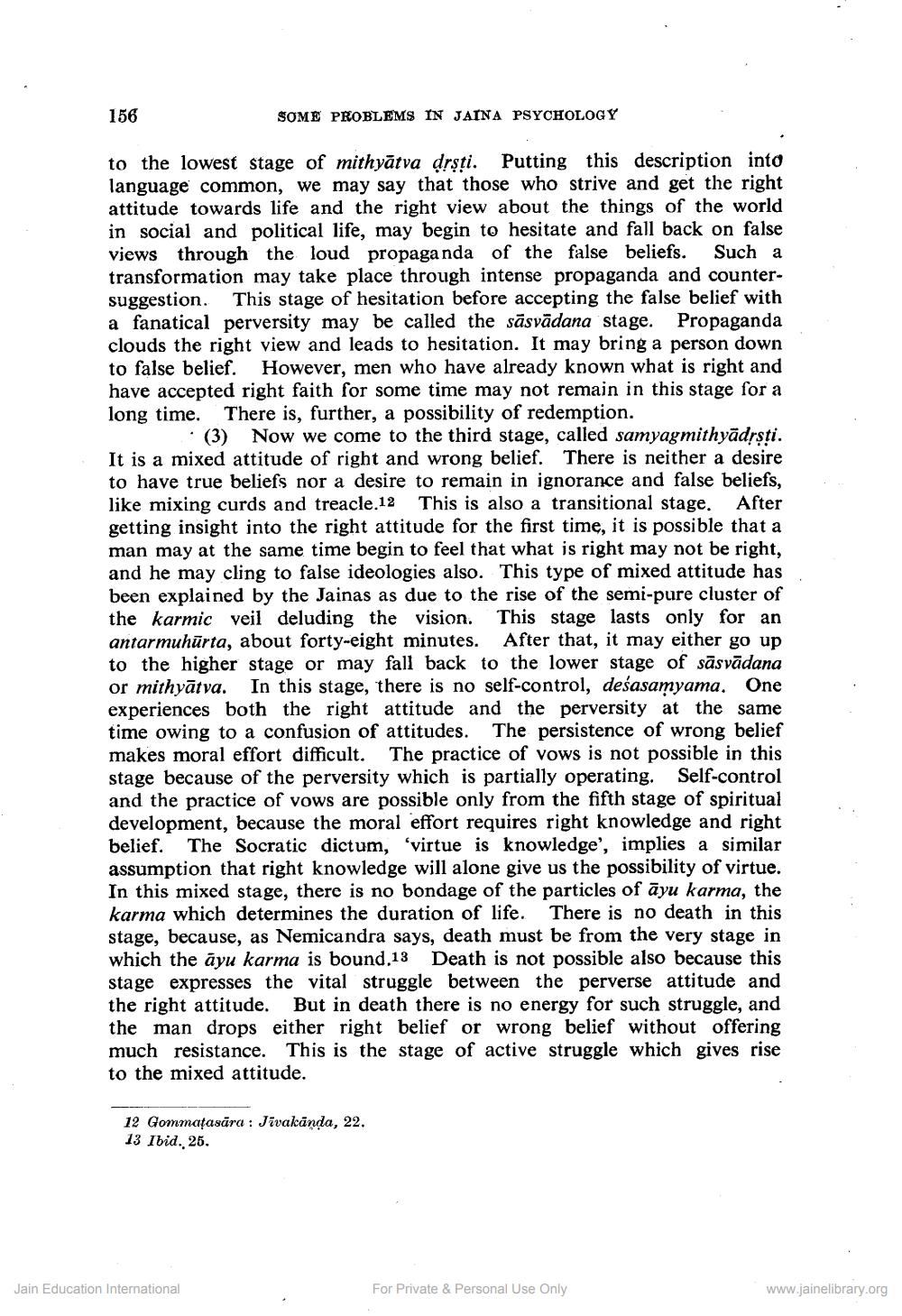________________
156
SOME PROBLEMS IN JAINA PSYCHOLOGY
to the lowest stage of mithyātva dṛṣṭi. Putting this description into language common, we may say that those who strive and get the right attitude towards life and the right view about the things of the world in social and political life, may begin to hesitate and fall back on false views through the loud propaganda of the false beliefs. Such a transformation may take place through intense propaganda and countersuggestion. This stage of hesitation before accepting the false belief with a fanatical perversity may be called the sasvädana stage. Propaganda clouds the right view and leads to hesitation. It may bring a person down to false belief. However, men who have already known what is right and have accepted right faith for some time may not remain in this stage for a long time. There is, further, a possibility of redemption.
⚫ (3) Now we come to the third stage, called samyagmithyādṛṣṭi. It is a mixed attitude of right and wrong belief. There is neither a desire to have true beliefs nor a desire to remain in ignorance and false beliefs, like mixing curds and treacle.12 This is also a transitional stage. After getting insight into the right attitude for the first time, it is possible that a man may at the same time begin to feel that what is right may not be right, and he may cling to false ideologies also. This type of mixed attitude has been explained by the Jainas as due to the rise of the semi-pure cluster of the karmic veil deluding the vision. This stage lasts only for an antarmuhurta, about forty-eight minutes. After that, it may either go up to the higher stage or may fall back to the lower stage of sasvādana or mithyātva. In this stage, there is no self-control, deśasamyama. One experiences both the right attitude and the perversity at the same time owing to a confusion of attitudes. The persistence of wrong belief makes moral effort difficult. The practice of vows is not possible in this stage because of the perversity which is partially operating. Self-control and the practice of vows are possible only from the fifth stage of spiritual development, because the moral effort requires right knowledge and right belief. The Socratic dictum, 'virtue is knowledge', implies a similar assumption that right knowledge will alone give us the possibility of virtue. In this mixed stage, there is no bondage of the particles of ayu karma, the karma which determines the duration of life.. There is no death in this stage, because, as Nemicandra says, death must be from the very stage in which the ayu karma is bound,13 Death is not possible also because this stage expresses the vital struggle between the perverse attitude and the right attitude. But in death there is no energy for such struggle, and the man drops either right belief or wrong belief without offering much resistance. This is the stage of active struggle which gives rise to the mixed attitude.
12 Gommaṭasāra: Jivakända, 22. 13 Ibid., 25.
Jain Education International
For Private & Personal Use Only
www.jainelibrary.org




